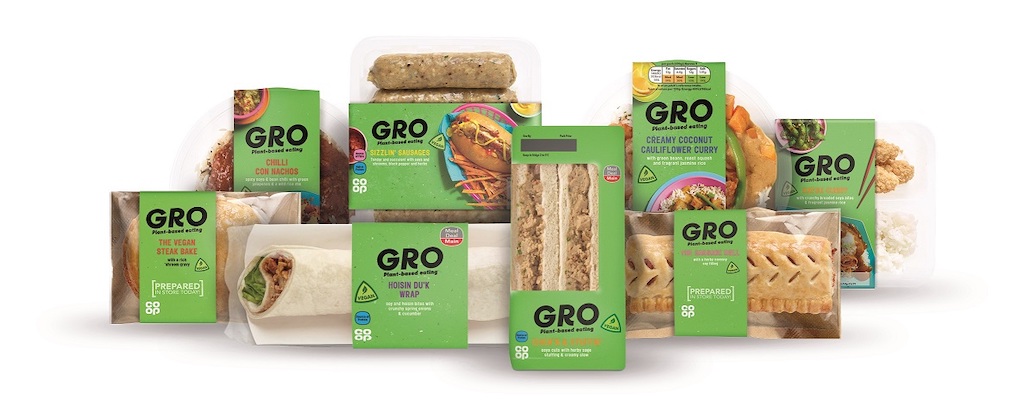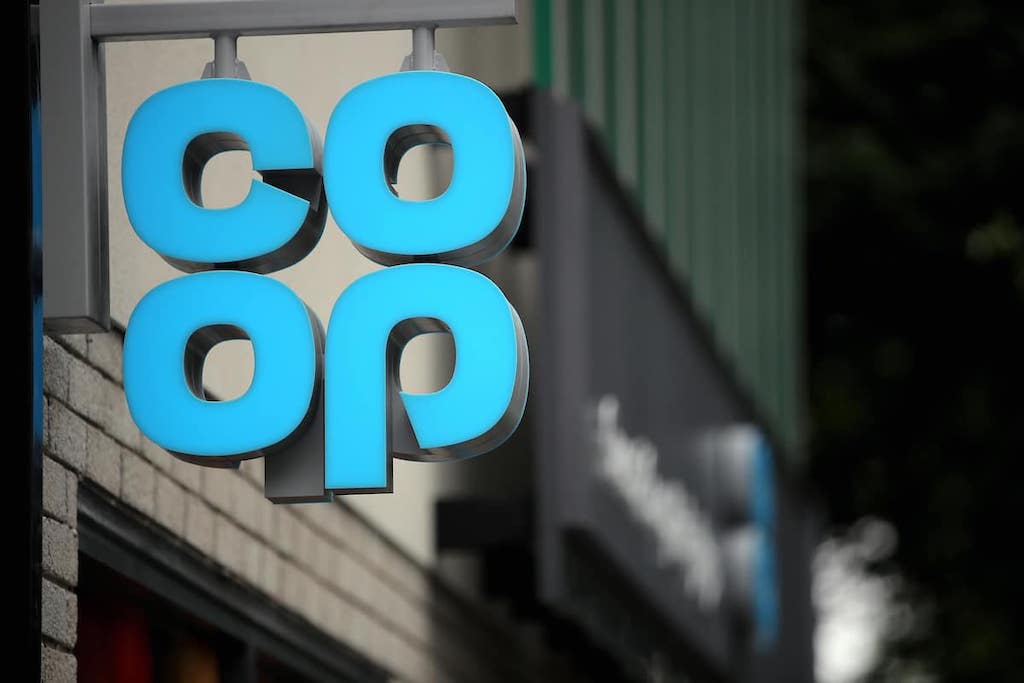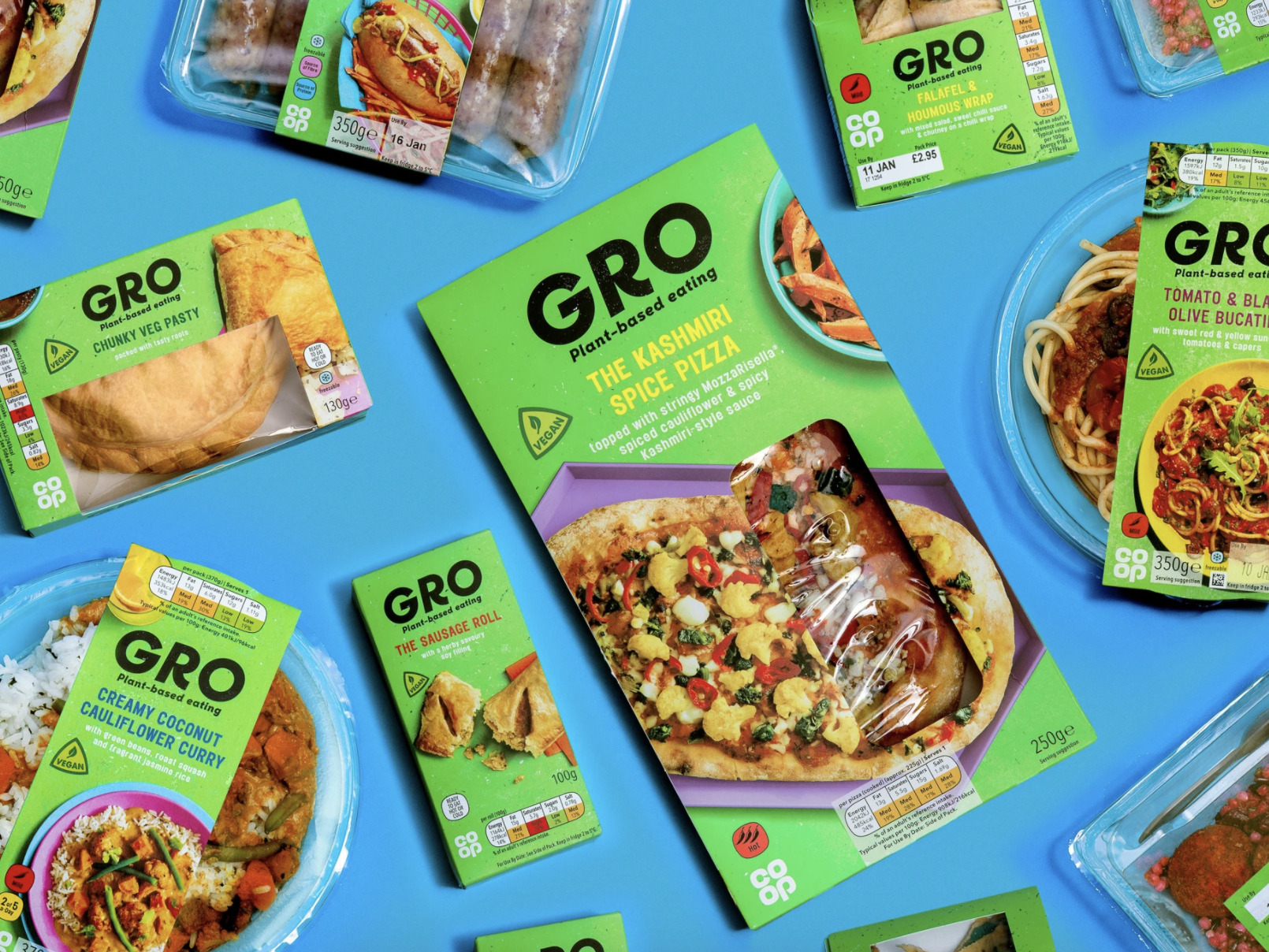Budget-Friendly Vegan: British Retailer Co-Op Pledges To Close ‘Plant-Based Price Gap’ To Reach Net-Zero
4 Mins Read
Co-op has announced its plan to “tackle the plant-based price gap” as part of its goal to reach net-zero emissions by 2040. The commitment will see the British retail chain invest over £1.7 million (US$2.36 million) to slash the cost of more than two dozen vegan products, a move catering to its increasingly flexitarian consumer base.
British supermarket Co-op has pledged to put £1.7 million (US$2.36 million) aside to lower the prices of its plant-based products from Wednesday (May 5) onwards. Lowering the price of 29 fresh, chilled and ambient vegan products across its 6,000 stores in the country, the commitment to match its plant-based range to its animal-based equivalents is part of the convenience store’s new goal to reach carbon neutrality by 2040.
“At Co-op, we believe it shouldn’t cost you more money to eat plant-based food and that this disparity is unfair to those following vegetarian, vegan and flexitarian diets,” said Jo Whitfield, CEO of Co-op Food.
“It’s Co-op’s ambition to make our plant-based range, GRO, even more accessible to our members and customers, helping them make decisions that collectively will have an impact on the world we all share.”

We believe it shouldn’t cost you more money to eat plant-based food and that this disparity is unfair to those following vegetarian, vegan and flexitarian diets.
Jo Whitfield, CEO, Co-op Food
Among some of the products that will see prices reduced by as much as 50% include the group’s GRO-branded vegan sausages, meat free burger and meat free mince – all of which are now retailing affordably between £1.35 to £1.75 (US$1.39 to US$2.43). Other products that will see cuts include ready-made pies, vegan meatballs and reheatable dinners like plant-based katsu curry.
Commenting on the move, Lynne Elliot, CEO of the Vegetarian Society, said: “This is brilliant news from Co-op, and we support any move that makes plant-based food more accessible with fewer barriers to purchase. Eating a plant-based diet is one of the best things you can do to help reduce your carbon footprint and it’s delicious.”
Plant-based diets are far more carbon-friendly than meat and dairy-heavy diets because animal-based foods use up huge amounts of land and water resources, and animal agriculture as a whole releases as much as 18% of the world’s greenhouse gas emissions.
A recent G20 food footprint report by Oslo-based nonprofit EAT found that if the world’s largest economies switched to a flexitarian diet – lowering the consumption of meat and dairy – we could free up 40% of the total global carbon budget for food.
Other measures that Co-op says it’ll take to reduce its carbon footprint include offsetting the greenhouse gas emissions of all its own-branded food and beverages by 2025, investing in natural restoration projects in the U.K. and creating an innovation fund dedicated to carbon research. Co-op will also neutralise its emissions in its own operations through offsetting programs by the end of 2021.

This is brilliant news from Co-op, and we support any move that makes plant-based food more accessible with fewer barriers to purchase.
Lynne Elliot, CEO, The Vegetarian Society
“Emissions from our operations and our own-brand products are where we have the greatest responsibility and can make the biggest difference. This move is a step in the right direction and we encourage other retailers and brands to consider making the change too,” said Whitfield.
The climate plan will see the retailer release annual progress reports, and the company CEO Whitfield’s pay will even be directly linked to the achievement of these targets, in a strong show of commitment to its sustainability pledges.
Co-op’s move comes as retailers across the board in the U.K. are pushing to capitalise on the plant-based trend, with the likes of M&S opening a new plant-based protein innovation hub and Tesco setting a five-year plant-based sales target of 300%. Asda, on the other hand, became the first grocery chain in the country to launch dedicated vegan aisles in its stores.
Similar plant-forward plans have been made by multinational CPG firms, including Nestlé, who has vowed to roll out more plant-based products amid pandemic-driven demand boost in vegan sales, and Unilever, who has set a US$1.19 billion annual sales goal for its plant-based meat and dairy alternatives.
All images courtesy of Co-op.




